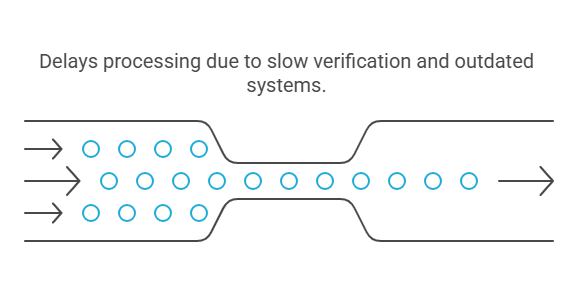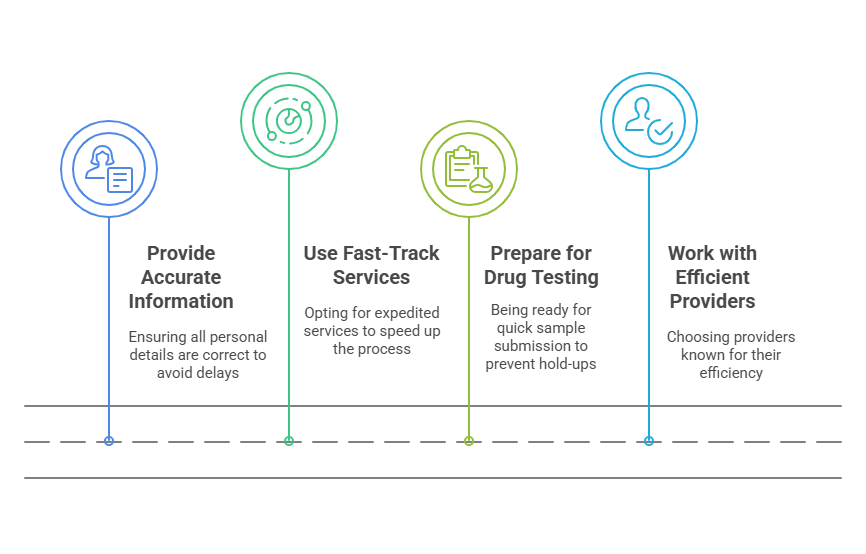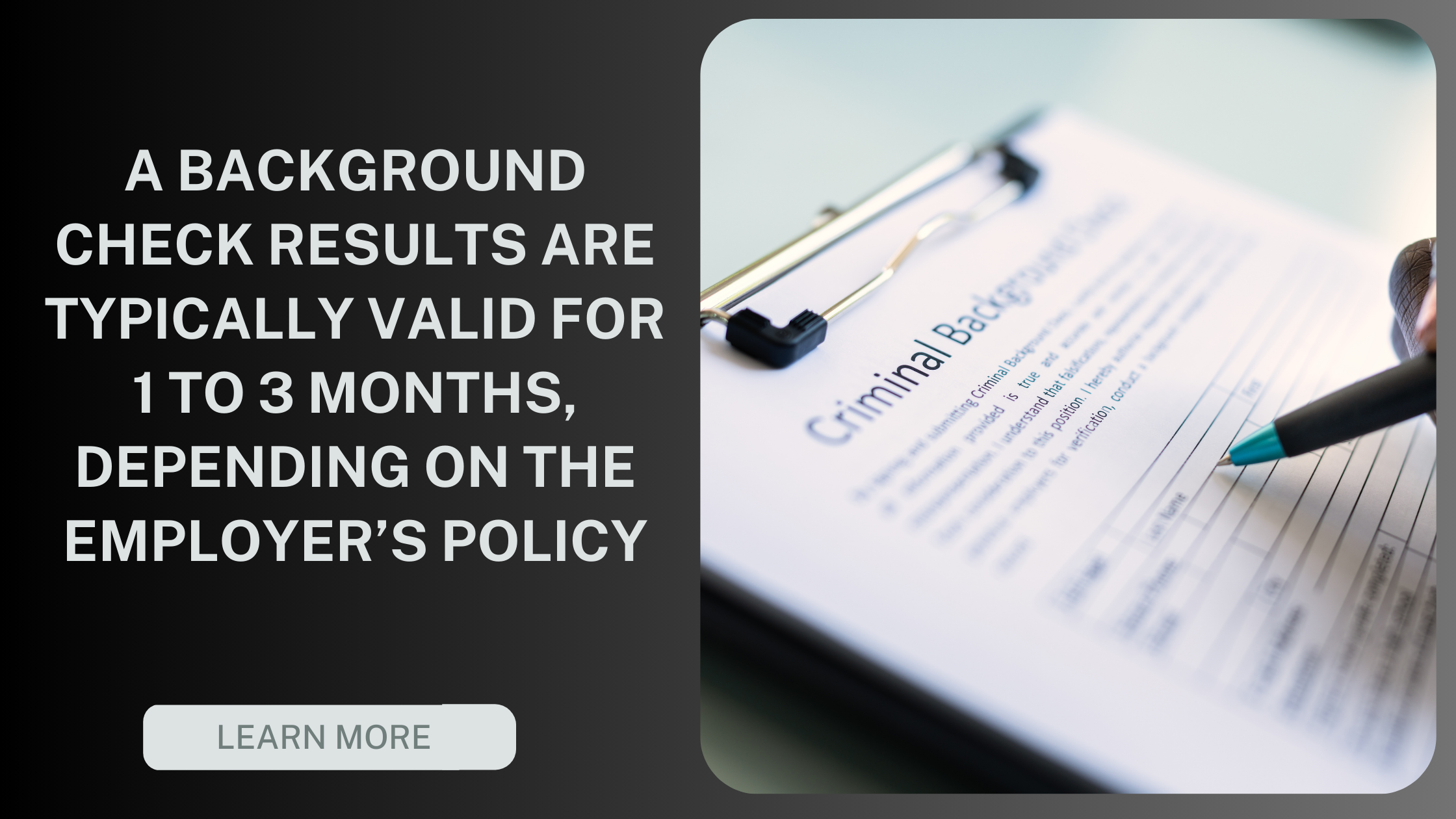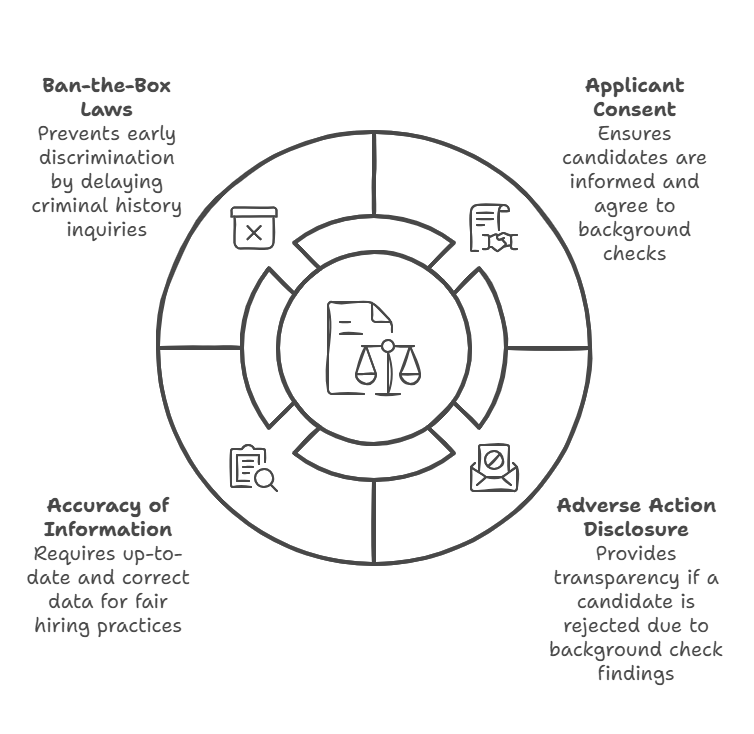How Long Does a Background Check Last?
A background check is a process in which an individual’s history is investigated to verify their credentials, past activities, and ensure that they are suitable for a specific purpose, such as employment, renting, or obtaining certain licenses. It involves reviewing various records, including criminal history, credit reports, employment history, education, and more. There are different types of background checks based on the requirements of the organization or entity performing the check. These may include:
- Criminal background checks: Investigating any criminal history, including felony and misdemeanor charges, arrests, and convictions.
- Employment history checks: Verifying past job titles, dates of employment, job responsibilities, and reasons for leaving.
- Credit reports: Analyzing the applicant’s financial history, including outstanding debts, bankruptcies, and payment history.
- Education verification: Confirming educational qualifications such as degrees, certifications, and institutions attended.
- Drug testing: Conducting tests for illegal substances or alcohol to ensure a candidate’s suitability for the job.
Each type of check is tailored to assess different aspects of an individual’s background, with the scope and depth of investigation varying by the purpose of the background check.
Why Do Employers Conduct Background Checks?
Employers perform background checks for several reasons, primarily to ensure the safety, integrity, and trustworthiness of their workforce. A background check helps employers make informed decisions by confirming that the candidate meets the qualifications and standards required for the role. Some of the common reasons for conducting a background check include:
- Security and safety: Employers want to ensure that candidates do not have a criminal history that could pose a risk to their workplace, employees, or customers.
- Trust and reliability: Employers check for employment history and credit reports to ensure candidates have been trustworthy in previous jobs and are financially stable.
- Compliance: Many industries, such as finance, healthcare, and education, require strict background checks due to regulatory compliance standards.
- Company reputation: A background check helps employers avoid hiring individuals who may damage the company’s reputation, either through dishonesty or misconduct.
- Protecting the workplace culture: Background checks ensure that new hires align with the organization’s values and contribute positively to the work environment.
How Long Does a Background Check Last?
The duration of a background check can vary based on several factors, but generally, the process takes anywhere from a few days to a couple of weeks. On average, it may take 3 to 7 business days for a simple background check, while more complex checks could extend to 2 weeks or longer.
Several factors influence the time it takes to complete a background check:
- Type of background check: Criminal background checks are usually faster, whereas checks involving education and employment verification or credit history may take more time.
- Complexity of the background: If the individual has a complex history with multiple addresses, criminal records, or previous job changes, it can delay the process.
- State and federal requirements: In some cases, the type of jurisdiction can impact how long a background check takes. Some states or counties have additional verification requirements that can extend the timeline.
- Third-party agencies: The efficiency of the background check provider also plays a significant role. Some companies may be more equipped to process checks quickly, while others may take longer.
Factors That Can Speed Up or Delay a Background Check
Several factors can either speed up or delay the duration of a background check. Here are some of the key elements that influence how long the process lasts:

- Type of Background Check: Some checks, like criminal background checks, tend to be faster than others. On the other hand, checks involving employment verification or credit checks may take longer because of the additional steps involved in verifying records or contacting past employers and financial institutions.
- Location: The geographical area where the background check is being conducted can significantly impact the duration. For instance, checks that need to verify criminal records or other information across multiple states or counties can take longer. Federal records may also involve a more complex process compared to state-level checks.
- Applicant’s History: A candidate with multiple past addresses, a criminal record, or inconsistent employment history can make the process more time-consuming. The background check provider may need to gather additional records or perform further verification steps, which can extend the overall duration of the check.
- The Efficiency of the Background Check Provider: The speed of a background check can depend on the agency or company conducting it. Some background check providers have faster turnaround times due to streamlined processes, better technology, or access to real-time databases. Others may take longer due to less efficient systems or manual verification procedures.
How Long Do Specific Types of Background Checks Take?
Different types of background checks have varying timeframes. Here is a breakdown of how long each of these checks typically takes to complete:
- Criminal Background Checks: These checks are generally quick and can take anywhere from 1 to 5 business days. The duration depends on whether the check is local, state, or federal. Local checks are often the fastest, while federal checks may require more time to complete.
- Employment History Verification: This process typically takes 5 to 7 business days. Verifying past job titles, employers, dates of employment, and reasons for leaving can take time, especially if the applicant has worked for multiple companies over many years.
- Credit Checks: A credit report is usually pulled quickly, often within 1 to 3 business days. However, credit checks may take longer if there are disputes or a complex financial history that requires additional investigation.
- Drug Testing: The time it takes for drug testing to be completed depends on the testing method (urine, saliva, hair, etc.) and the turnaround time of the laboratory processing the results. On average, drug testing results can take anywhere from 1 to 7 days.
- Education Verification: Verifying educational qualifications can take anywhere from 3 to 7 business days, depending on how quickly schools respond to verification requests. However, delays may occur if the institutions have outdated records or if the applicant attended multiple schools.
- Professional License Verification: For positions that require professional licenses (such as doctors, lawyers, or accountants), the verification process may take 5 to 10 business days. The timeframe can vary based on the type of license and the licensing authority’s response time.
How to Ensure a Faster Background Check
There are several steps applicants and employers can take to ensure that the background check process is as fast as possible:

- Provide Accurate and Complete Information: Inaccurate or incomplete information can delay the background check. Applicants should ensure that all personal details, past addresses, and employment history are up-to-date and accurate. This reduces the need for follow-up questions or re-verification, speeding up the process.
- Use Fast-Track Services: Some background check companies offer expedited services for a faster turnaround. Using these services can significantly shorten the duration of the background check. These services may cost more but are worth considering for urgent hiring needs.
- Be Prepared for Drug Testing and Additional Checks: If drug testing is required, applicants should be prepared to provide samples as quickly as possible. Delays in submitting drug tests or additional required checks can slow down the overall process.
- Work with Efficient Background Check Providers: Employers can choose background check companies with a proven track record of efficiency. Many providers offer comprehensive services that combine multiple checks into a single process, reducing overall turnaround time.
RapidHireSolutions and How It Helps
For employers seeking fast and comprehensive background checks, services like RapidHireSolutions offer streamlined solutions that can help expedite the process. RapidHireSolutions offers a wide range of background screening services, including criminal record checks, employment history verification, credit checks, and compliance verification. Their services are designed to provide timely and reliable results, ensuring that employers can make quick and informed decisions.
By using RapidHireSolutions, businesses can reduce the delays associated with background checks and ensure they meet all necessary regulatory compliance standards. The platform offers automated tools, real-time updates, and fast-track services, making it easier for employers to manage the background screening process.
Table of Common Background Check Types and Timeframes
| Background Check Type | Typical Timeframe |
|---|---|
| Criminal Background Check | 1-5 days |
| Employment History Verification | 5-7 days |
| Credit Check | 1-3 days |
| Drug Testing | 1-7 days |
| Education Verification | 3-7 days |
| Professional License Verification | 5-10 days |


